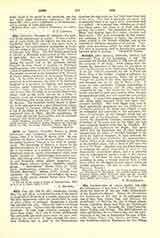

Aistulph (also AISTULF, ASTULPH, ASTULF, and ASTOLPH), King of the Lombards; d. 756. He succeeded his brother Ratchis in 749, and set about the conquest of all Italy. After taking from the Greeks the Exarchate of Ravenna, he was about to seize the Patrimony of St. Peter when Pope Stephen II (or III—752-57) appealed for aid to Pepin the Short, King of the Franks. Failing to influence the Lombard king by persuasion, Pepin led an army through the passes of the Alps, defeated Aistulph, and besieged him in the city of Pavia (754). A peace was then concluded, Aistulph undertaking to surrender the Exarchate and all other territory conquered by him. But Pepin and his Franks had hardly returned to their own country when Aistulph besieged Rome itself, and laid waste the surrounding territory. A second time responding to the Pontiff’s call, Pepin again besieged Pavia and again overpowered Aistulph. This time Pepin took care to exact substantial guarantees for the fulfilment of Aistulph’s promises; the latter was obliged to pay an indemnity and surrender to his conqueror the town of Comacchio, on the Adriatic, which had not formed part of the Exarchate. Constantine Copranymus, the Byzantine Emperor, asserted that the Exarchate of Ravenna was his by right, and had been violently wrested from him by Aistulph. He demanded its restitution by Pepin. The latter replied that the Exarchate and all other territory rescued from the hands of Aistulph belonged to the victor by right of conquest; he then endowed the Holy See with these territories, his representative, Fulrad, Abbot of St. Denis, formally laying the keys of the fortified places with a deed of gift upon the altar of St. Peter. Aistulph even yet found pretexts to postpone the actual evacuation of some of the theoretically surrendered places, and it is probable that he contemplated another essay of the chances of war. A fall from his horse while hunting (or, according to some, a wound received from a wild boar) ended his life before he had time to renew his warlike enterprises. He left no male issue. (See Temporal Power.)
E. MACPHERSON

